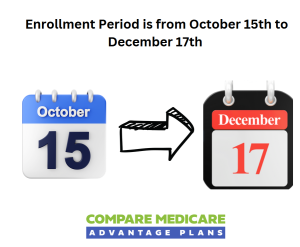Medicare Part A - Hospital Coverage
Navigating Medicare Part A coverage doesn’t have to be complicated. This article will explain the potential hospital insurance costs, coverage details for hospital and nursing facility stays, and simplified enrollment steps.
Eligibility starts at 65 or with certain disabilities and you’ll find the knowledge you need to confidently manage your Medicare Part A decisions without the typical confusion.
Key Takeaways
- Medicare Part A covers hospital-related services such as inpatient care, skilled nursing facility care, hospice care, and home health services, but it might not include certain services like round-the-clock home care or a private room during hospital stays.
- Eligibility for premium-free Medicare Part A is based primarily on age (65+), disability benefits, or specific medical conditions like ALS and ESRD, with the ability to enroll during the Initial Enrollment Period, General Enrollment Period, or Special Enrollment Period.
- While Medicare Part A may not require premium payments for those who have paid Medicare taxes sufficiently, it could include deductibles and coinsurance costs that could exist alongside other parts of Medicare such as Part B (Medical Insurance), Part C (Medicare Advantage), and Part D (Prescription Drug Coverage).
Compare Plans in One Step!
Enter Zip Code
Demystifying Medicare Part A: Hospital Insurance

Medicare Part A, often referred to as hospital insurance, is a fundamental component of Medicare, the U.S. health insurance program that will likely be designed primarily for individuals aged 65 and above.
This healthcare plans could provide coverage for a spectrum of hospital-related services, including:
- Inpatient care
- Skilled nursing facility care
- Hospice care
- Home health services
Part A inpatient care may cover:
- Semi-private rooms
- Meals
- General Nursing
- Drugs necessary for inpatient treatments
These plans could also provide for your needs during your hospital stay. However, not all services may be covered; for instance, a private room or a private-duty nurse might not be part of the coverage.
If you have a spouse who has paid Medicare taxes for at least a decade, you may also be eligible for premium-free Part A coverage, lightening your financial responsibilities.
Inpatient Care
Inpatient care refers to services that could be provided to patients admitted to a hospital. Medicare Part A could potentially offer a broad scope of inpatient care coverage, which may include:
- Semi-private rooms
- Meals
- General Nursing
- Drugs required for inpatient treatments
This coverage could cater to most of your needs during your hospital stay, which may include medical supplies.
In a step towards holistic care, Medicare Part A could also provide coverage for limited mental health treatment in psychiatric hospitals.
This potential inclusion may highlight the importance of mental health in overall well-being and ensure that those in need of psychiatric care are not left without support.
Skilled Nursing Facility Care

A skilled nursing facility is a healthcare establishment that could offer specialized nursing care, encompassing physical and occupational therapy, speech-language pathology services, and certain medical social services.
These types of facilities could play a significant role in bridging the gap between hospitalization and returning home, assisting patients in their recovery and independence restoration.
Medicare Part A will likely provide extensive coverage in a skilled nursing facility, including:
- Semi-private rooms
- Meals
- Skilled nursing care
- Therapy sessions
Nonetheless, members should be aware that services not covered by Medicare Part A will likely be your responsibility, hence the importance of fully understanding your coverage.
Hospice Care

Hospice care, according to Medicare Part A, will likely be a specialized care model for patients with a terminal illness, whose life expectancy is 6 months or less. The emphasis of hospice care may be on improving the quality of life and providing comfort, rather than curing the illness.
Under Medicare Part A, coverage for hospice care may include:
- Support care
- Pain medications
- Symptom management
- Grief and loss counseling
- Respite care
This coverage could potentially extend to essential prescription medications that may be required to manage symptoms that could be associated with the terminal condition. The potential cost for hospice care under Medicare Part A could ensure that patients may be able to receive the care they need without adding financial stress.
Home Health Services
Some of the home health services under Medicare Part A may include:
- Skilled nursing care
- Physical therapy
- Speech-language pathology
- Occupational services
These services could potentially ensure that patients can receive the care they need in the comfort of their own homes.
Nevertheless, certain exclusions may be worth noting. Medicare Part A might not cover:
- Round-the-clock home care
- Meal delivery
- Homemaker services
- Personal care services like bathing or dressing if they are the only care services required
Knowing what is and isn’t covered could optimize your use of home health services.
Medicare Part A Eligibility Criteria

A variety of factors could determine Medicare Part A eligibility, including age, disability benefits, or certain medical conditions. Individuals aged 65 or older qualify for Medicare Part A automatically.
If you apply within 6 months of turning 65, your Part A coverage starts the month you turn 65, or the month before if your birthday falls on the first day of the month.
Individuals who receive disability benefits may also be eligible for Medicare Part A, though it’s important to note that solely receiving Supplemental Security Income (SSI) does not automatically qualify an individual for Medicare; eligibility criteria related to age or disability benefits must be met.
Furthermore, individuals with specific medical conditions such as Amyotrophic Lateral Sclerosis (ALS) or end-stage renal disease (ESRD) are also eligible for Medicare Part A.
To enroll in any of these plans, call one of our licensed agents at 1-833-641-4938 (TTY 711), Mon-Fri 8 am-9 pm EST. They can provide comprehensive information, personalized guidance, and ongoing assistance to navigate the enrollment process for private insurance companies, making it easier for beneficiaries to make informed decisions about their healthcare.
Age-Based Eligibility
To be eligible for Medicare Part A based on age, an individual must be 65 years or older. If you receive or are eligible to receive benefits from Social Security or the Railroad Retirement Board (RRB), you can become eligible for Medicare Part A at no cost when you reach the age of 65.
To apply for railroad retirement board benefits, just contact Social Security at least 3 months before you turn 65 or reach out to the Railroad Retirement Board (RRB) if you have worked for a railroad.
Disability-Based Eligibility
Disability-based eligibility for Medicare Part A is automatic for individuals who have received disability benefits for 24 months or eligible government employees disabled for 29 months.
Qualifying individuals must be under 65 and have received Social Security Disability benefits for at least 24 months.
Special Medical Conditions
Certain medical conditions may also qualify an individual for Medicare Part A. These could include Amyotrophic Lateral Sclerosis (ALS), also known as Lou Gehrig’s disease, and End-Stage Renal Disease (ESRD).
Individuals with ALS might be eligible for Medicare Part A from the first month they start receiving Social Security or Railroad Retirement Board disability cash benefits.
If they undergo regular dialysis treatments or have received a kidney transplant, individuals with ESRD may be eligible for premium-free Medicare Part A. They must also meet certain other conditions to qualify.
Enrollment Periods for Medicare Part A
Enrolling in Medicare Part A is a crucial step in securing your health coverage. To sign up for part A, be aware of specific enrollment periods, including the Initial Enrollment Period, General Enrollment Period, and Special Enrollment Period.
There are three enrollment periods for Medicare:
 The Initial Enrollment Period spans 7 months, commencing 3 months before turning 65 and concluding 3 months after the month of turning 65.
The Initial Enrollment Period spans 7 months, commencing 3 months before turning 65 and concluding 3 months after the month of turning 65.
- The General Enrollment Period takes place annually from January 1 to March 31, offering another opportunity to enroll.
- The Special Enrollment Period permits individuals to enroll in premium Part A and Part B due to exceptional circumstances and has a duration of 2 months.
Initial Enrollment Period
The Initial Enrollment Period for Medicare Part A provides a 7-month window for individuals to enroll. This period begins 3 months before your 65th birthday month and ends 3 months after you turn 65.
For individuals receiving disability benefits, the Initial Enrollment Period starts 3 months before their 25th month of receiving disability benefits and ends 3 months after.
During this time, individuals who are already receiving Social Security benefits are typically automatically enrolled, while others may need to sign up through Social Security.
General Enrollment Period
The General Enrollment Period for Medicare Part A occurs annually from January 1 to March 31. This period gives individuals who missed the Initial Enrollment Period another chance to sign up for Medicare Part A.
Special Enrollment Period
The Special Enrollment Period for Medicare Part A allows individuals to enroll due to extraordinary circumstances, such as the end of group health plan coverage or employment. This period provides a 2-month window to enroll in a Medicare Advantage Plan.
To apply during the Special Enrollment Period, individuals need to enroll due to a qualifying circumstance. Their employer must fill out form CMS-L564 and submit it to their local Social Security office.
To enroll, call 1-833-641-4938 (TTY 711), Mon-Fri 8 am-9 pm EST, or enter your zip code into any of the zip code boxes on this website.
Potential Medicare Part A Costs and Financial Responsibilities

Though Medicare Part A could provide broad coverage, comprehending some of the associated costs is necessary. The potential costs for Medicare Part A will likely be categorized into premium-free or premium-based coverage, along with possible deductibles and coinsurance for diverse services.
For most people, Part A could be premium-free, provided they or their spouse paid Medicare taxes for a certain amount of time.
However, if you don’t qualify for premium-free Part A, you may be able to purchase it by paying a monthly premium.
Premium-Free vs. Premium-Based Part A
To qualify for premium-free Part A, you must:
- Be 65 or older
- Meet the criteria for receiving Social Security or Railroad Retirement Board (RRB) cash benefits
- Have accumulated at least 40 calendar quarters of work in a job where you paid Social Security taxes.
If you don’t meet the requirements for premium-free Part A, you may have the option to purchase it. The cost will depend on the number of work credits you have earned, if any.
Deductibles and Coinsurance
Besides premiums, Medicare Part A may also include deductibles and coinsurance. Deductibles refer to the annual amount you’re required to pay for covered healthcare services before Medicare starts paying. Conversely, coinsurance is the percentage of the total cost that you’re obliged to pay after meeting your deductible.
If your hospital stay extends beyond 60 days, you may be required to make coinsurance payments.
Navigating Medicare: Additional Parts and Options

Medicare could extend beyond Part A. Some of the additional parts and possible options will likely be available to provide you with comprehensive coverage, possibly encompassing Part B (Medical Insurance), Medicare Advantage (Part C), and Prescription Drug Coverage (Part D).
Part B covers medical insurance, which could include doctor visits, outpatient care, and preventive services.
Medicare Advantage, or Part C, could act as an alternative to Original Medicare and may offer additional benefits through private insurance companies. Lastly, Prescription Drug Coverage, or Part D, will likely provide coverage for both generic and brand-name medications.
Medicare Part B (Medical Insurance)
Medicare Part B covers medical insurance, which includes doctor visits, outpatient care, and preventive services.
Individuals receiving Social Security or RRB benefits at least 4 months before becoming eligible for Medicare and residing in the United States automatically qualify for Part B.
However, it’s important to note that if you don’t enroll in Part B when you’re first eligible, you may have to pay a late enrollment penalty for as long as you have Part B.
Medicare Advantage (Part C)
Some of the Medicare Advantage Plans, or Part C, could serve as an alternative offered by Medicare-approved private companies. Individuals with Part A and Part B can choose to enroll in a Medicare Advantage Plan, which could potentially provide coverage for all services included in Original Medicare.
Some of the Medicare Advantage (Part C) plans may also often include additional benefits, such as:
- Prescription drug coverage
- Dental and vision coverage
- Hearing services
Enrollment can be done during the Open Enrollment Period, which runs from October 15 to December 7 annually.
Prescription Drug Coverage (Part D)
Medicare’s Prescription Drug Coverage, Part D, will likely be intended to assist with prescription drug costs. To acquire this coverage, you must enroll in a Medicare-approved plan that provides drug coverage.
Some of the potential costs that may be associated with a Medicare drug plan include:
- Monthly premiums, which vary depending on the plan
- Deductibles are the amount you must pay before your plan starts to cover your medications
- Coinsurance is the percentage of the cost of your medications that you are responsible for paying
These costs may vary depending on the specific plan you choose.
Summary
Navigating the world of Medicare might be daunting, but understanding Medicare Part A could be the first step towards unlocking the health coverage benefits you need. From inpatient care and skilled nursing facility care to home health services and hospice care, Medicare Part A will likely provide comprehensive coverage for a variety of services.
With possible options that could extend your coverage through Medicare Part B, Medicare Advantage, and Prescription Drug Coverage, you have the power to tailor your healthcare to meet your needs. So, take that first step today and explore your Medicare Part A options.
Frequently Asked Questions
→ What exactly is Medicare Part A?
Medicare Part A may cover inpatient hospital care, skilled nursing facility care, hospice care, and some home health care. It could be an essential part of Medicare that may also help with various medical expenses.
→ What is the difference between Medicare Part A and B and C?
The main difference between Medicare Part A, B, and C is that Part A could covers inpatient/hospital care, Part B cover outpatient/medical care, and Part C may offer an alternative way to receive Medicare benefits.
Part D could provide prescription drug coverage.
→ Does Medicare Part A cover 100%?
No, Medicare Part A does not cover 100% of the costs for inpatient stays or other covered services. You will likely be responsible for some portion of the cost-sharing, such as deductibles, coinsurances, and copayments.
→ What is Part B Medicare?
Medicare Part B is the portion of Medicare that may cover certain doctor visits and other outpatient medical services, as well as durable medical equipment and preventive services.
It is important to sign up promptly to avoid gaps in coverage or late enrollment penalties.

ZRN Health & Financial Services, LLC, a Texas limited liability company



 The Initial Enrollment Period spans 7 months, commencing 3 months before turning 65 and concluding 3 months after the month of turning 65.
The Initial Enrollment Period spans 7 months, commencing 3 months before turning 65 and concluding 3 months after the month of turning 65.